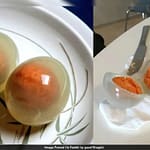A study lasting a decade has found that although penguins often “mate for life”, akin to humans, they also look for ‘chemistry’ elsewhere. Scientists found that “divorce” was relatively common in the colony of 37,000 little penguins they studied on Philip Island over 13 breeding seasons. The split usually came after a disappointing mating season but led to further dissatisfaction down the road for the cheating wife-swappers.
The study found that divorce rates among these penguins are a significant predictor of the colony’s breeding success. However, after a poor breeding season, penguins are more inclined to seek new partners, aiming to improve their reproductive outcomes.
“In good times, they largely stick with their partners, although there’s often a bit of hanky-panky happening on the side,” said Richard Reina, co-author of the study published in the journal Ecology and Evolution.
“However, after a poor reproductive season they may try to find a new partner for the next season to increase their breeding success,” added Mr Reina who is the head of the ecophysiology and conservation research group at Monash University in Australia.
Of around a thousand pairs studied, there were 250 ‘divorces’ after ten years, while others were ‘widowed’. Overall breeding success in seasons after more penguins ditched their partners was lower, indicating the plan of leaving for a bigger flock of chicks didn’t really pan out.
Also Read | Penguin Waits Patiently As Couple Clears Path In Antarctica, Video Delights Internet
The cost of divorce
While divorcing allowed penguins to find a higher-quality mate, it came with a cost. A lot of time is lost on ‘mate-searching and courtship’ meaning reproduction is delayed or even prevented entirely, the study highlighted.
“Furthermore, this may force parents to forage for their chicks during times of poorer food availability because of the delay in beginning reproduction caused by having to spend time finding a new mate.”
New pairs might not be as efficient at coordinating the complex tasks of nest-building, egg incubation, and chick-rearing as established couples. It added that penguins who prolonged their bond over multiple seasons, experienced increased reproductive success over time.
This research into the little penguins of Phillip Island provides a crucial insight into the social dynamics of the bird species. It also helps agencies better plan conservation efforts to protect penguins.











Leave a Reply